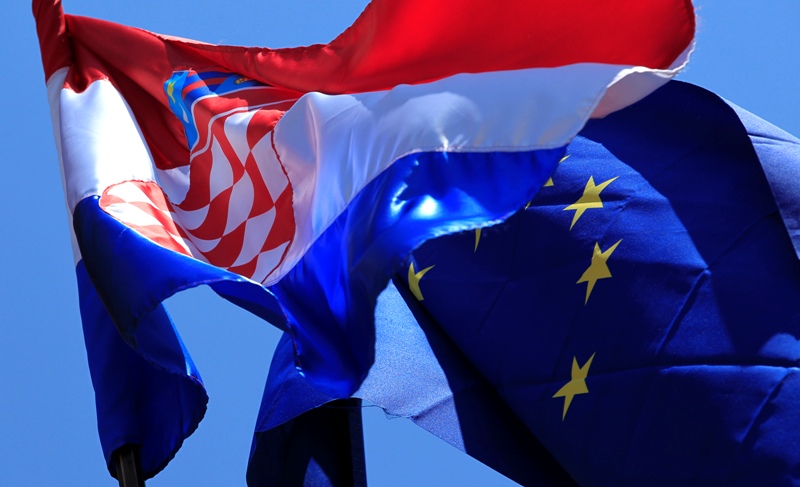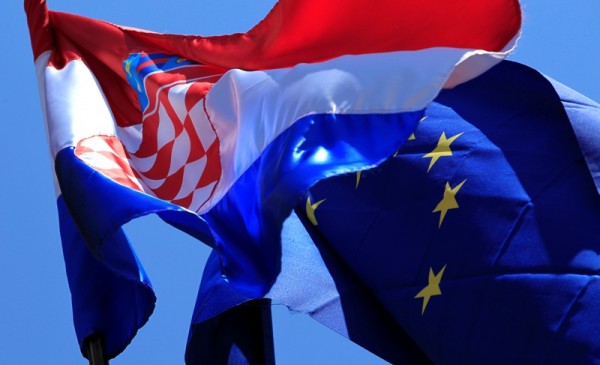On October 28, the Croatian Journalists’ Association (HND) issued a stark warning about a new wave of lawsuits against journalists and media in the country.
It reported that a dozen lawsuits had been filed by high-ranking politicians and public personalities, such as former Member of Parliament Branimir Glavaš, Rector of the University of Zagreb, Damir Boras, and former Minister of Agriculture Tomislav Tolušić.
Tolušić filed 11 lawsuits against the news websites Telegram.hr, Index.hr and Virovitica.net for publishing articles reporting that the National Conflicts of Interest Prevention Commission had initiated proceedings against him for misreporting the size of his property.
In his lawsuit against Telegram.hr, Tolušić didn’t challenge the fact that he misrepresented the size of his property, but claimed that the article “damaged his dignity, reputation and honour.” In response, the Municipal Court in Zagreb issued a non-final ruling stating Telegram.hr must pay the former minister 30.000 Croatian kuna (€4,000) compensation.
Hrvoje Zovko, president of the Croatian Journalists’ Association (HND) believes that such lawsuits aim at censoring, intimidating and ultimately silencing journalists. “These lawsuits are pure intimidation. Journalists are being dragged through the courts in order to dissuade them from looking into serious, important topics”, Zovko said.
With the costs of legal defence against such lawsuits often reaching exorbitant sums, these vexatious lawsuits pose a serious financial threat to media outlets already struggling to stay afloat due to the COVID-19 pandemic.
Litigation as tradition
Far from being a threat only to journalists in Croatia, these so-called SLAPPs – Strategic Lawsuits Against Public Participation – are a pan-European problem.
In June 2020, 119 NGOs from across Europe including the International Press Institute (IPI) signed a joint letter urging the EU to protect freedom of expression and information by putting an end to such gag lawsuits. The letter mentioned cases of SLAPPS across Europe, from Germany to France, from Italy to Malta. Others have recently been initiated in Slovenia.
Such lawsuits are also commonplace in Croatia. According to figures gathered by the Croatian Journalists’ Association, as of May this year, there were at least 905 active lawsuits against 18 media outlets and journalists, demanding a total of 69 million kuna (€9 million). Since not all media outlets responded to the HND’s survey, this figure could be far higher. In 2019, according to its survey, there were 1,163 lawsuits ongoing in the country, with the majority making claims for non-material damages such as “mental anguish” or “tarnished reputation”.
In Croatia, the majority of these lawsuits against the media are brought by politicians or former officials, as well as business owners and in some cases even judges.
While not all of these lawsuits can be classified as SLAPPs, the Croatian Journalists’ Association believes many of these cases meet the criteria: lawsuits brought forward by powerful actors such as companies, public officials in their private capacity, or high profile persons, with the aim of harassing and silencing those speaking out in the public interest, rather than achieving justice.
“There is not an exact definition of SLAPP lawsuits in Croatian legislation”, explained Vanja Jurić, a lawyer who has represented a number of journalists and media outlets in similar proceedings. “However, we’ve seen many cases of public personalities suing several media outlets at once or filing several lawsuits against one media.”
She continued: “In such cases, the plaintiff’s aim is not necessarily to win the case, but rather put pressure on journalists and media [targeted by such lawsuits]. They’re used as a cautionary tale for journalists and media who might be tempted to write about them in the future.”
In Croatia it is not rare that a journalist is sued for an article that already underwent a legal screening prior to publication, or for publishing satirical content, or for simply quoting an interviewee. In November 2018, for example, a court ordered the daily Jutarnji list to pay 50,000 kuna (€7000) in damages to a judge and member of the State Judicial Council, over an interview with a politician who referred to the State Judicial Council as “the source of corruption”. However, the plaintiff’s name wasn’t even specifically mentioned in the interview, and the article was approved by the interviewee before publication. The lawsuit went ahead nonetheless.
Exertion of power
In October 2019, the offence of ‘shaming’ was removed from the Croatian criminal law, a move that was welcomed by HND and the media sector in the country.
However, plaintiffs can still launch criminal proceedings for insult and defamation or start civil proceedings with claims for compensation. According to data obtained by the website Balkan Insight, “by the end of 2018, 91 of the 119 criminal proceedings brought against journalists that year were for defamation, 13 were for insult and only five were for harsh shaming”.
HND President Zovko also expressed concern over the high damage claims. HND’s “Centre for protection of freedom of expression” has a roster of lawyers providing pro bono legal help for its members who cannot afford a lawyer (e.g., small media outlets or freelancers). “If a small, local media were to pay damages of 30.000 or 40.000 kunas (€4 -5000), this could be the end of them,” Zovko explains. “This is the equivalent of the annual budget for some of these outlets. The claims are often disproportionate.”
During a pandemic and economic recession, such lawsuits are therefore a matter of survival for smaller, independent outlets.
A decision from the European Court of Human Rights from November 2018 support’s Zovko’s opinion and sets an important precedent in terms of compensation claims. In Narodni List D.D. v. Croatia, the Court ruled that Croatia had violated the freedom of expression rights of the weekly magazine Narodni List after the publication was ordered to pay damages to a judge.
Narodni List had published an article in 2008 criticizing the judge for going to a party despite a potential conflict of interest. A Croatian county court ordered the magazine to pay €6,000 in damages. However, the ECtHR ruled that the article “covered a matter of public interest” and considered it “non-insulting”. Moreover, the ruling said that “the award of damages was excessive” warning that this could, “discourage open discussion on matters of public concern”.
While such ECtHR rulings set an encouraging precedent for the media in fighting SLAPPs, human rights and media freedom organizations have been warning that an integrated approach should be devised to curb vexatious lawsuits.
In a public statement on October 27, Council of Europe Human Rights Commissioner Dunja Mijatović called for a comprehensive EU-wide response. She outlined a threefold approach: prevening the filing of SLAPPs by allowing early dismissal of such cases, introducing measures to punish abuse (e.g., by forcing plaintiffs to bear the costs of proceedings) and minimizing the consequences of SLAPPs by giving practical support to those sued.
For many Croatian journalists and media outlets, action to address SLAPPs and the abuse of criminal legisaltion would no doubt come as welcome news in what has already been a very challenging year.
———————–
- Click here to read more from IPI’s new reporting series Media Freedom in Europe in the Shadow of Covid




